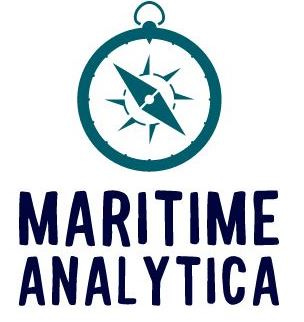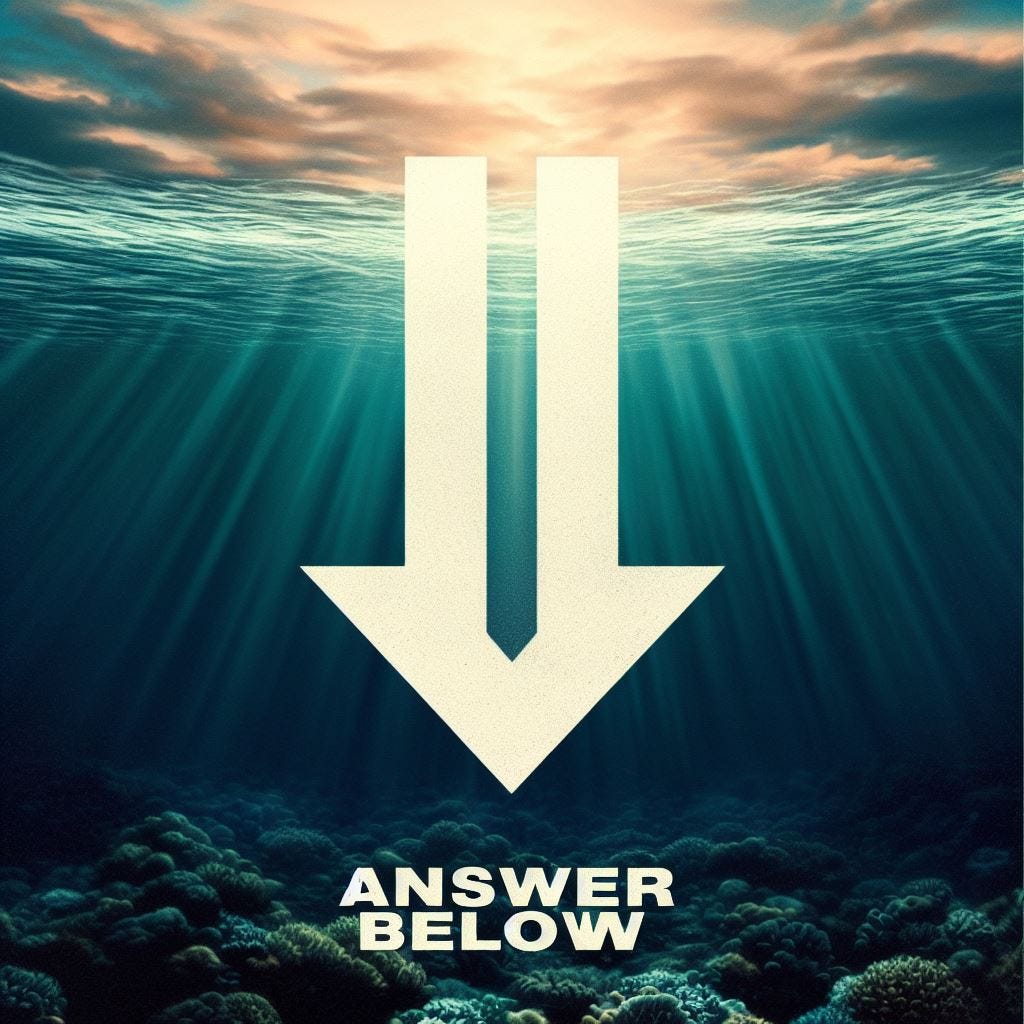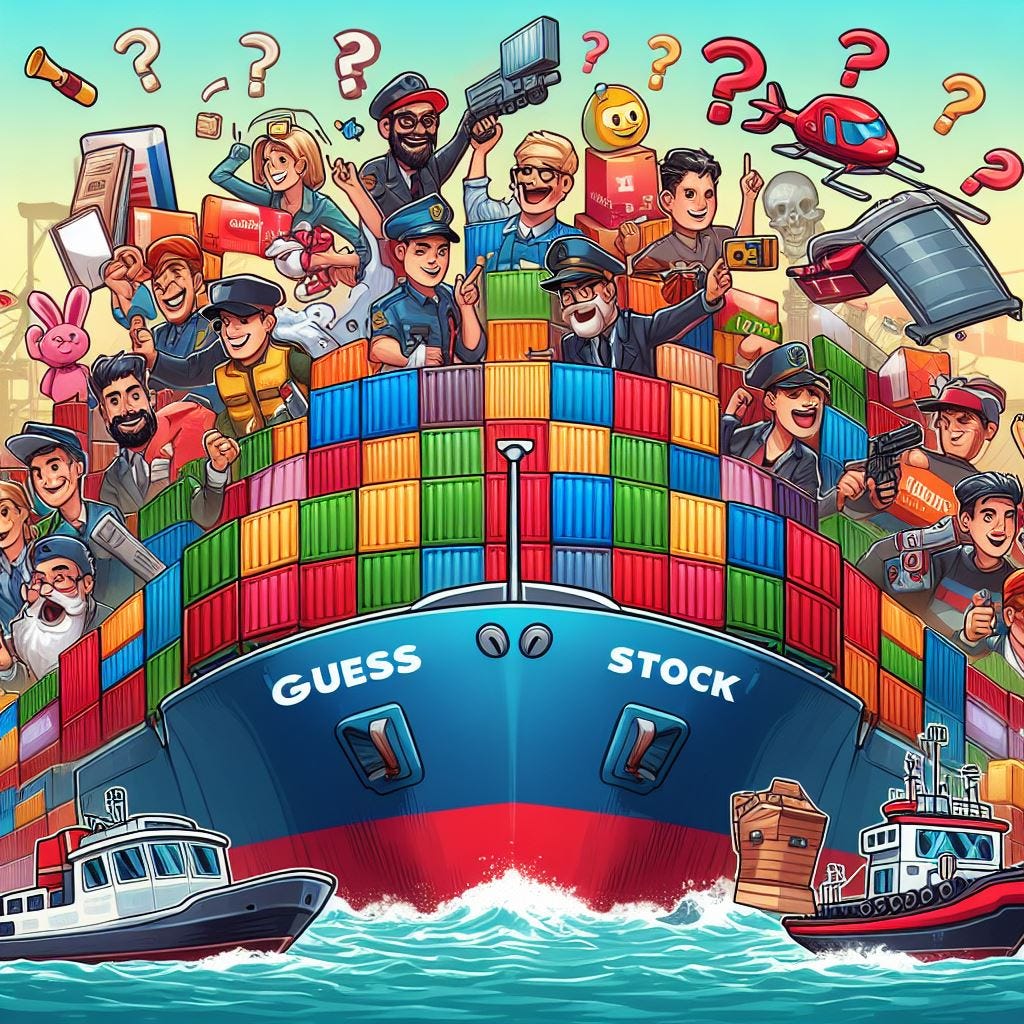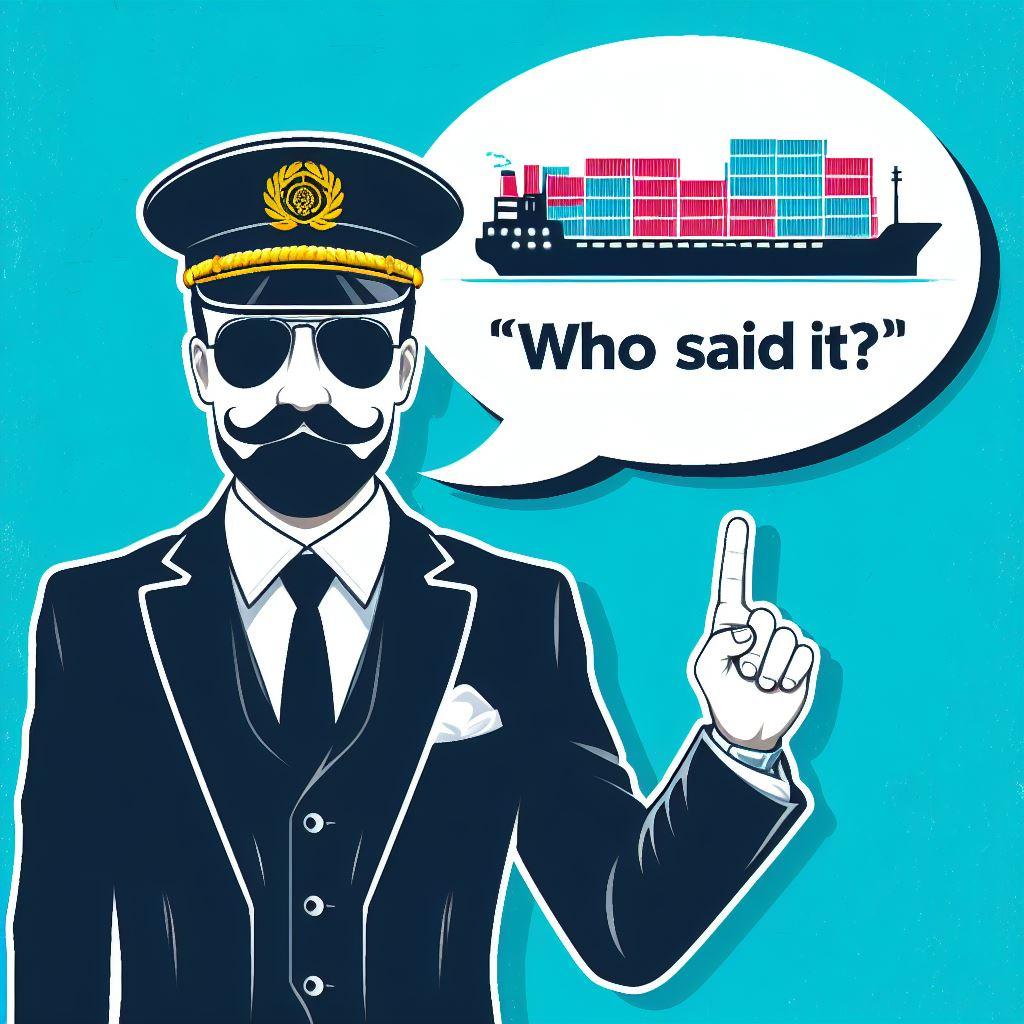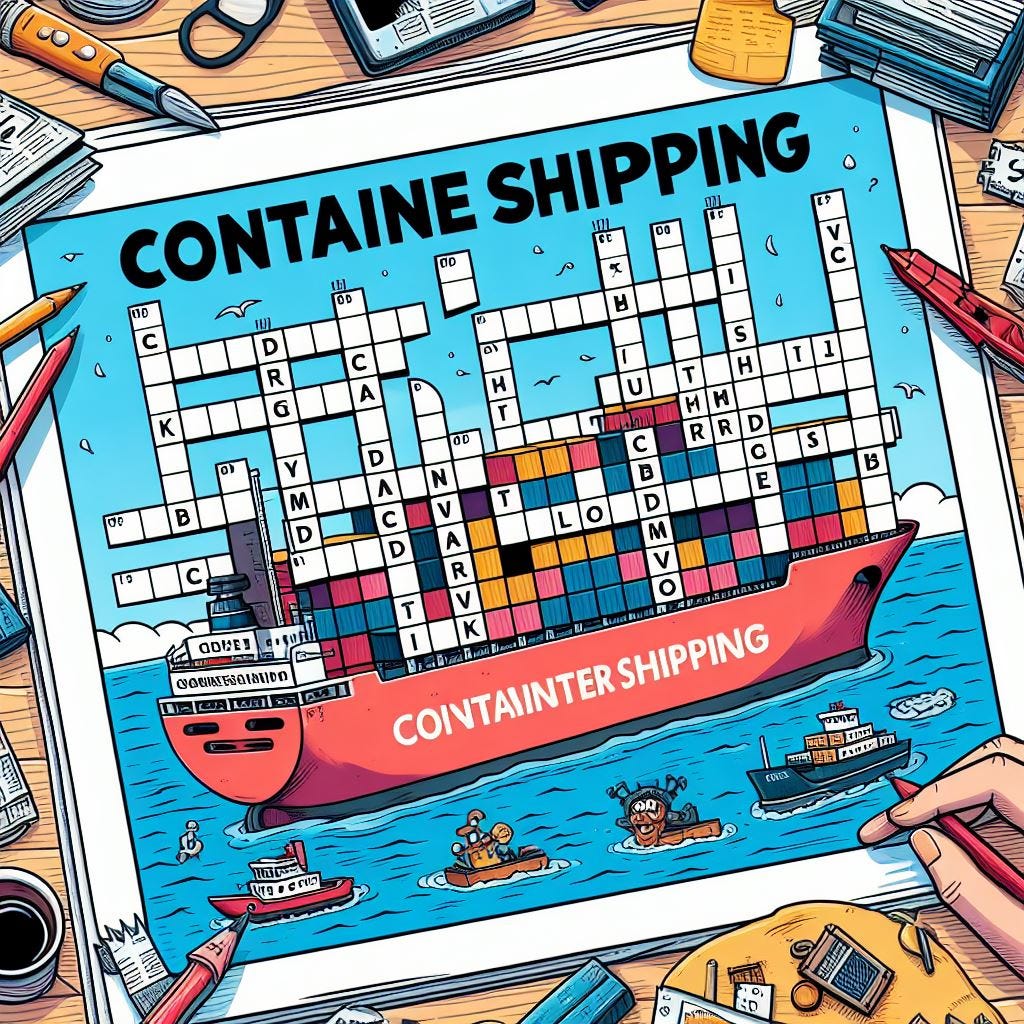🎡 The Maritime Games Edition - 04
Navigate the Sea of Fun with Puzzles, Quizzes, and Challenges!
Ahoy, Maritime Adventurers! ⚓🌊
Gear up for an electrifying journey with our newest edition.
Are You Shipping Savvy? 🚢
Guess the stock 💰 📈
Who said it? 🗣️
Mega Crossword Puzzle 🧩
Guess the port below 🚢 ⚓
🚢 Dive into quizzes, crosswords, and challenges with a refreshing twist – but here's the challenge: refrain from scrolling for answers until you've given it your best shot! 🧠💡
Embark on a thrilling odyssey of excitement and strategy.
🌟 Ready, steady, solve! 🚀
1- Are You Shipping Savvy?
The standard size of a twenty-foot equivalent unit (TEU) container is ___ feet.
The world's largest container shipping company by fleet size is ___.
The process of unloading cargo from a ship is called ___.
The International Maritime Organization (IMO) was established in ___.
The practice of stacking containers on top of each other on a ship is known as ___.
The busiest container port in the world is located in ___.
A container ship's capacity is often measured in ___.
The process of transferring containers between different modes of transport is known as ___.
The term "last mile delivery" refers to the ___.
The shipping container was invented by ___ in ___.
Answers:
20
MSC
Discharging
1948
Stowage
Shanghai, China
TEUs (Twenty-foot Equivalent Units)
Intermodal transportation
Final stage of delivery to the customer
Malcolm McLean, 1956
2- Guess the stock 💰
This company is a publicly held international cargo shipping company, and one of the top 10 global carriers around +100K employees worldwide. Founded in EU in 1904. The current market cap is around 27 billion USD. Total market share is 15% globally according to Alphaliner.
3- Who said it?
We’ll give you quotes from the container shipping news, and you have to name the prominent person who said it.
“This time around, it might be a little different than Covid-19. We have already hit the peak of disruptive impact. Vessels that needed extra-long detours to go around Africa have now completed those journeys. The empty container shortfall that could be expected in China likely reached an apex in terms of magnitude already in mid-January. As such, the momentum for rates to spike even further on account of fear of worse to come has waned.”
“Vessels are already avoiding the area due to the Houthi attacks and the US and UK missile strikes are unlikely to change that. The longer this crisis goes on, the more disruption it will cause to ocean freight shipping across the globe and costs will continue to rise. This means goods being delayed, or not arriving at all, and rising prices for the end consumer. Tension in the Middle East is nothing new and there has always been a level of risk for ocean freight shipping. You cannot rule anything out, but it is unlikely we will see escalations of this kind in the Strait of Hormuz. But we are looking at months rather than weeks or days before this crisis reaches any kind of resolution.”
” The difference between fossil fuels and green fuels prevents carriers from using the cleaner fuels as they cannot absorb that cost and still compete commercially with operators that are burning fossil fuel.”
“Attacks on cargo vessels in the Red Sea by Yemen-based Houthi rebels are unlikely to end soon, forcing shipping companies to avoid the route through the Suez Canal. We don't think it will be over the day after tomorrow. Whether it'll be one, three or five months - I don't know."
“The Red Sea crisis is only a short-term phenomenon and cannot be compared with the increase in freight rates during the pandemic. The main challenge for the shipping industry is overcapacity, supply and demand determine freight levels. Once the situation normalises, with an economic downturn, freight rates are unlikely to rise. Many operators will have to correct rates and respond by blanking sailings. We feel that the conflict hasn’t been resolved, so we will continue to avoid sailing through the Red Sea. The IMF’s economic forecast for this year has been revised upwards, but it’s mainly due to the US economy performing better. The Chinese economy is still unstable, and other regions are still affected by geopolitics.”
1- Lars Jensen from Vespucci Maritime
2- Peter Sand from Xeneta
3- Bryan Wood-Thomas from World Shipping Council
4- Rolf Habben Jansen from Hapag LLoyd
5- Chang Yen-Yi from Evergreen (Chairman)
*Click the names for the references
4- Mega Crossword Puzzle
Dive into container shipping fun with our crossword puzzle! Unravel industry terms and enjoy the challenge in this edition. Play it here.
5- Guess the port below 🚢
🗝️Clue: Handled 21 million TEU in 2023, reflecting a rise of 2.5 per cent from 2022. Based in Asia. It is in Top 10. And recently signed a Memorandum of Understanding (MOU) with Port of Los Angeles to bolster cooperation on the development of digital supply chain infrastructure, creation of a Trans-pacific Green Shipping Corridor between the two ports, and other sustainability initiatives to reduce port-related emissions and greenhouse gases.
Port of Guangzhou, China
We read your emails, comments, and poll replies daily. Hit reply and let us know what you want more of! - Email: maritime-analytica@outlook.com
Have you missed any past newsletter? Check them out here:
For more daily news, follow up via LinkedIn here:
For more, please complete the form:


